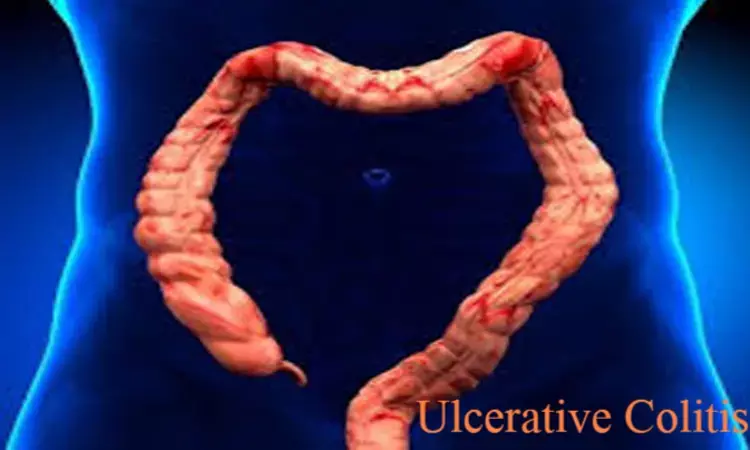- Home
- Medical news & Guidelines
- Anesthesiology
- Cardiology and CTVS
- Critical Care
- Dentistry
- Dermatology
- Diabetes and Endocrinology
- ENT
- Gastroenterology
- Medicine
- Nephrology
- Neurology
- Obstretics-Gynaecology
- Oncology
- Ophthalmology
- Orthopaedics
- Pediatrics-Neonatology
- Psychiatry
- Pulmonology
- Radiology
- Surgery
- Urology
- Laboratory Medicine
- Diet
- Nursing
- Paramedical
- Physiotherapy
- Health news
- Fact Check
- Bone Health Fact Check
- Brain Health Fact Check
- Cancer Related Fact Check
- Child Care Fact Check
- Dental and oral health fact check
- Diabetes and metabolic health fact check
- Diet and Nutrition Fact Check
- Eye and ENT Care Fact Check
- Fitness fact check
- Gut health fact check
- Heart health fact check
- Kidney health fact check
- Medical education fact check
- Men's health fact check
- Respiratory fact check
- Skin and hair care fact check
- Vaccine and Immunization fact check
- Women's health fact check
- AYUSH
- State News
- Andaman and Nicobar Islands
- Andhra Pradesh
- Arunachal Pradesh
- Assam
- Bihar
- Chandigarh
- Chattisgarh
- Dadra and Nagar Haveli
- Daman and Diu
- Delhi
- Goa
- Gujarat
- Haryana
- Himachal Pradesh
- Jammu & Kashmir
- Jharkhand
- Karnataka
- Kerala
- Ladakh
- Lakshadweep
- Madhya Pradesh
- Maharashtra
- Manipur
- Meghalaya
- Mizoram
- Nagaland
- Odisha
- Puducherry
- Punjab
- Rajasthan
- Sikkim
- Tamil Nadu
- Telangana
- Tripura
- Uttar Pradesh
- Uttrakhand
- West Bengal
- Medical Education
- Industry
Artificial intelligence may obviate biopsy need in ulcerative colitis

Tokyo, Japan-Researchers at Tokyo Medical and Dental University (TMDU) have developed an artificial intelligence system that effectively evaluates endoscopic mucosal findings from patients with ulcerative colitis without the need for biopsy collection
Assessments of patients with ulcerative colitis (UC), which is a type of inflammatory bowel disease, are usually conducted via endoscopy and histology. But now, researchers from Japan have developed a system that may be more accurate than existing methods and may reduce the need for these patients to undergo invasive medical procedures.
In a study published this February in Gastroenterology, researchers from Tokyo Medical and Dental University (TMDU) have revealed a newly developed artificial intelligence (AI) system that can evaluate endoscopic findings of UC with an accuracy equivalent to that of expert endoscopists.
Accurate evaluations are critical in providing optimal care for patients with UC. Previous studies have indicated that both endoscopic remission, evaluated via assessment of endoscopic procedure, and histological remission, as indicated by the degree of microscopic inflammation, can predict patient outcomes, and are thus frequently used as treatment goals. However, intra- and inter-observer variations occur in both endoscopic and histological analyses, and histological analysis frequently requires the collection of tissue via biopsies, which are invasive and costly.
"The interpretation of endoscopic images is subjective and based on the experience of individual endoscopists, thereby making the standardization of evaluation and real-time characterization challenging," says lead author of the study Kento Takenaka. "To address this, we sought to develop a deep neural network (DNN) system for consistent, objective, and real-time analysis of endoscopic images from patients with UC (DNUC)."
To do this, the researchers developed a system with DNNs to evaluate endoscopic images from patients with UC. DNNs are a type of AI machine-learning method that is based on the construction of artificial neural networks.
"We constructed the DNUC algorithm, using 40,758 images of colonoscopies and 6885 biopsy results from 2012 patients with UC," says senior author Mamoru Watanabe. "This comprised the training set for machine-learning, which enabled the algorithm to learn to accurately evaluate and classify the data".
The researchers then validated the accuracy of the DNUC algorithm using 4187 endoscopic images and 4104 biopsy specimens from 875 patients with UC.
"We found that the DNUC achieved a level of accuracy that was equivalent to that of expert endoscopists," says Takenaka. "Thus, our system was able to predict histologic remission from UC using endoscopic images only, as opposed to both histological and endoscopic data. This represents an important development given the costs and risks associated with biopsies."
The DNUC may be able to identify UC patients who are in remission without requiring them to undergo biopsy collection and analysis. This could save time and money for medical institutions, and limit exposure to invasive medical procedures for individuals with UC.
For more details click on the link: https://doi.org/10.1053/j.gastro.2020.02.012
Hina Zahid Joined Medical Dialogue in 2017 with a passion to work as a Reporter. She coordinates with various national and international journals and association and covers all the stories related to Medical guidelines, Medical Journals, rare medical surgeries as well as all the updates in the medical field. Email: editorial@medicaldialogues.in. Contact no. 011-43720751
Dr Kamal Kant Kohli-MBBS, DTCD- a chest specialist with more than 30 years of practice and a flair for writing clinical articles, Dr Kamal Kant Kohli joined Medical Dialogues as a Chief Editor of Medical News. Besides writing articles, as an editor, he proofreads and verifies all the medical content published on Medical Dialogues including those coming from journals, studies,medical conferences,guidelines etc. Email: drkohli@medicaldialogues.in. Contact no. 011-43720751


